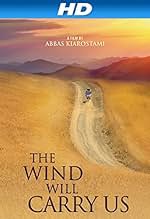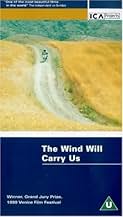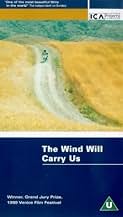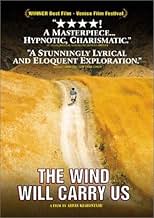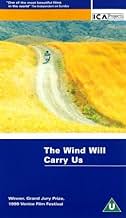An engineer (Behzad Dourani) travels to a remote Iranian village on an inexplicable assignment that involves his unseen assistants digging holes. The men work near a hill that turns out to be one of the main settings, and even characters, in Cannes Palme d'Or winner Abbas Kiarostami's new movie, "The Wind Will Carry Us."
Throughout the picture, the perpetually befuddled engineer drives up to the breezy incline to receive cell phone calls that don't come through clearly in the village below. Do the calls concern an old woman who's dying? A search for buried treasure? The exhumation of dead bodies? We never hear the other end of the conversations, so we never find out.
The modern hero's jeep and cell-phone dominated life seems empty of purpose, other than the impulses and sensory input of the moment. The lives of the traditional villagers don't seem any more meaningful. Kiarostami's picture is no ethnographic celebration of simple-hearted, but wise peasants with a profound culture.
The movie is like Samuel Becket's definitive theatre of the absurd, "Waiting for Godot." But while the depressed Irish playwright's characters wander around in a desolate landscape, Kiarostami's engineer is placed in a spacious, richly colored world that yields tantalizing, paradoxical hints of meaning, despite the random, aimless movements of the human beings who inhabit it.
Perhaps we're seeing this story from the wind's point-of-view.

